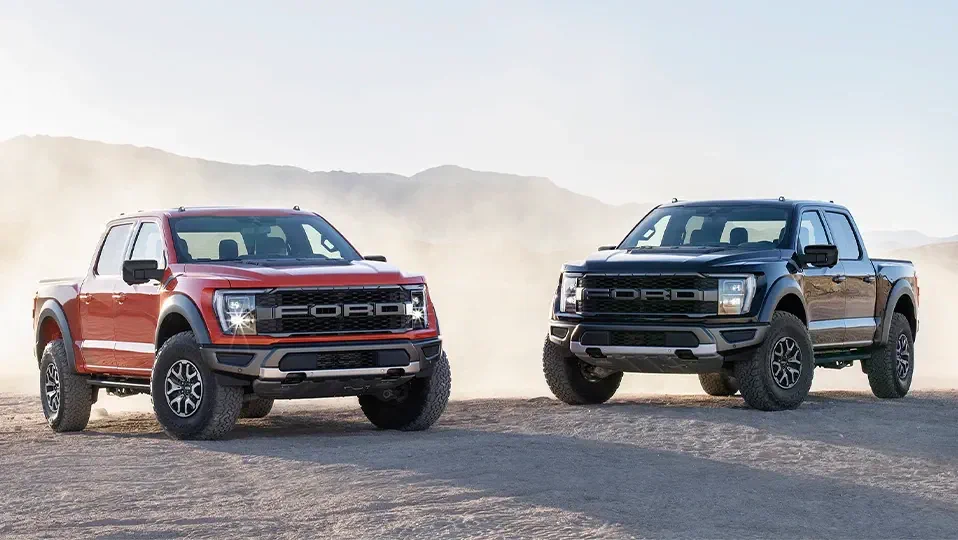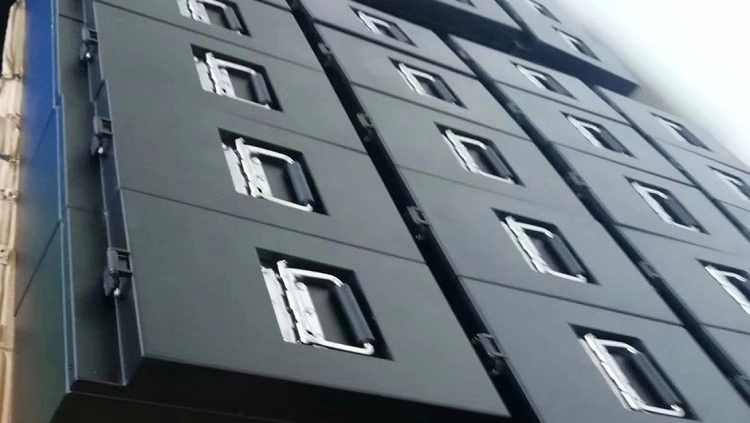The layout of multinational Automakers plan to use Lithium iron phosphate battery
1. Automakers layout of Lithium iron phosphate battery
Recently, American battery startup Our Next Energy announced that it will start producing lithium iron phosphate batteries in Michigan. After opening a new $1.6 billion factory next year, the company will continue to expand; by 2027, the company plans to provide enough lithium iron phosphate batteries for 200,000 electric vehicles.
Another U.S. battery start-up, Kore Power, also expects growing U.S. demand for lithium iron phosphate batteries. The company plans to set up two assembly lines in the factory in Arizona at the end of 2024, one for the production of ternary batteries currently mainstream in the United States, and the other for the production of lithium iron phosphate batteries.
At the same time, in February this year, CATL and Ford Motor reached an agreement. Ford will invest 3.5 billion US dollars to build a new battery factory in Michigan, the United States, which will mainly produce lithium iron phosphate batteries. Ford will hold 100% of the shares through a subsidiary, and CATL will provide technical assistance and patent licensing support.
Last month, South Korean battery maker LG New Energy revealed that the company is also stepping up the development of lithium iron phosphate batteries for electric vehicles. The company aims to outperform its Chinese rivals in the performance of its lithium iron phosphate batteries, which have a 20 percent higher energy density than CATL’s batteries for Tesla’s Model 3. The company may be aiming to supply Tesla with its lithium iron phosphate batteries, the report said. In addition, SK On is also cooperating with Chinese lithium iron phosphate material companies to deploy lithium iron phosphate battery production capacity in overseas markets.
In terms of overseas car companies, many overseas car companies have recently expressed their willingness to use lithium iron phosphate batteries.
Last month, Stellantis N.V. CEO Carlos Tavares said that the group is considering using lithium iron phosphate batteries in electric vehicles produced in Europe because it is more competitive in terms of cost. “The problem now is that it is difficult to source from Europe. When it comes to lithium iron phosphate batteries, it needs to be purchased from other regions.”
Also in February, a senior executive of General Motors said that the company was also exploring the possibility of using lithium iron phosphate batteries to reduce costs.
This month, Hyundai Motor said it was considering starting to use lithium iron phosphate batteries produced by CATL Times on Kia’s second-generation RayEV, which will be the first electric vehicle launched by Hyundai Motor equipped with lithium iron phosphate batteries. Previously, Hyundai vehicles were mainly equipped with ternary batteries from SK On, CATL and LG New Energy.
Some of Toyota’s electric vehicles produced in China have used lithium iron phosphate blade batteries provided by BYD.
Last year, Volkswagen, BMW, Ford, Renault S.A., Daimler AG and many other international mainstream car companies have clearly introduced lithium iron phosphate batteries in entry-level models.
Lithium iron phosphate batteries have received widespread attention and heated discussions in overseas industries.
Recently, 《MIT Technology Review》 published an article pointing out that China has greatly promoted the development of battery technology. “In the past ten years, Chinese companies have vigorously promoted lithium iron phosphate batteries instead of nickel-cobalt-manganese ternary batteries that are more popular in the West.”
“Lithium iron phosphate batteries are safer and cheaper, but initially they were not the first choice of European and American car companies because of low energy density, poor low-temperature performance, and even considered a backward technology,” 《MIT Technology Review》 emphasized that when European and American companies When abandoning lithium iron phosphate technology, some Chinese battery companies have spent ten years continuously researching it, continuously improving the energy density of batteries and systems, making it the mainstream technology route in low-end and mid-range models, “lithium iron phosphate The fact that batteries can go so far and are gradually recognized by global car companies and energy storage customers depends entirely on the innovation of Chinese battery companies, which also makes Chinese battery companies become world-class companies.”
There is no doubt that lithium iron phosphate batteries are being discussed, researched and used by car companies, battery companies, and the industry, which undoubtedly shows that lithium iron phosphate batteries have received global attention.
The latest data shows that in February this year, the installed capacity of power batteries in the Chinese market was 21.9GWh. Among them, the installed capacity of iron phosphate batteries was 15.2GWh, accounting for 69.3% of the total installed capacity; the installed capacity of ternary batteries was 6.7GWh, accounting for 30.6% of the total installed capacity. In the Chinese market, in July 2021, lithium iron phosphate was installed in a single month to counterattack the ternary battery. Since then, the mainstream position of lithium iron phosphate has never been shaken.
Adamas Intelligence said that although the proportion of lithium iron phosphate batteries in the announced battery capacity in the United States does not exceed 20%, all major automakers will tend to use the batteries in entry-level electric vehicles. The agency predicts that by the middle of the next decade, the share of lithium iron phosphate batteries in the United States will increase to 30%.
Goldman Sachs predicts that in 2025, lithium iron phosphate batteries will reach 36% of the global pure electric vehicle battery support. Though above analysis, Manly Battery is committed to OEM lithium iron phosphate battery, and support many solutions for different fields, including electric vehicle, toy, solar etc.
2. Chinese enterprises accelerate the layout of overseas lithium iron phosphate production capacity
As the main source of lithium iron phosphate technology, Chinese battery companies are accelerating the deployment of lithium iron phosphate production capacity around the world in the process of going overseas to consolidate their first-mover advantages in technology and production capacity.
In addition to CATL plan to authorize technology to Ford, GuoXuan High-Tech Co.,Ltd. Envision AESC, SVOLT Energy Technology, and other overseas companies have deployed lithium iron phosphate battery production capacity.
For example, in November last year, the battery factory jointly invested by GuoXuan Hi-Tech and Vietnam VinES started construction. The planned annual production capacity of the first phase of the new plant is 5 GWh, and it is expected to be put into operation at the end of 2023. It will become the first lithium iron phosphate battery plant in Vietnam.
In June last year, GuoXuan Hi-Tech established its first battery production and operation base in Europe in Göttingen, Germany. It plans to build a battery production base with an annual output of 18GWh. The products are mainly lithium iron phosphate batteries; GuoXuan Hi-Tech and InoBat, signed a memorandum of understanding. Based on their respective advantages in the field of lithium iron phosphate and ternary batteries, the two parties plan to jointly invest in the construction of 40GWh battery production capacity in Europe.
Envision AESC has built power battery factories in the UK, France, Spain, Japan, the United States and other overseas countries, and related factories will also cover lithium iron phosphate battery products in the future.
In addition, SVOLT Energy Technology has deployed two power battery factories in Germany, and the production capacity also includes lithium iron phosphate system.
As a famous of chinese OEM battery enterprice, Manly Battery has support multiple model of battery with its own factury, which LiFePO4 batteries is suitable for electric vehicle, Solar energy, robot etc. Manly Battery is popular with battery businesses for its excellent products and favorable prices.
3. The technology continues to lead, and the lithium iron phosphate Plus system of chinese enterprises is about to be mass-produced
When overseas battery companies realize that lithium iron phosphate batteries are promising, Chinese battery companies have gone one step further.
Since 2022, Chinese companies of battery and material have successively deployed phosphate-based upgraded products, including lithium manganese iron phosphate, M3P and other phosphoric acid material system battery products with higher energy density, better low-temperature performance, and lower cost than ternary batteries.
Recently, CATL revealed that the company’s M3P polybasic phosphate battery will be industrialized this year. This product increases the energy density of the battery, improves the low-temperature discharge capacity of the battery, and takes into account the mileage and cost advantages, which is conducive to improving the company’s phosphate system products. competitiveness.
Manly Battery will focus on the new technology of LiFePO4 battery, and update its technology and equipments in time. And it will support customized serve of battery for businesses





